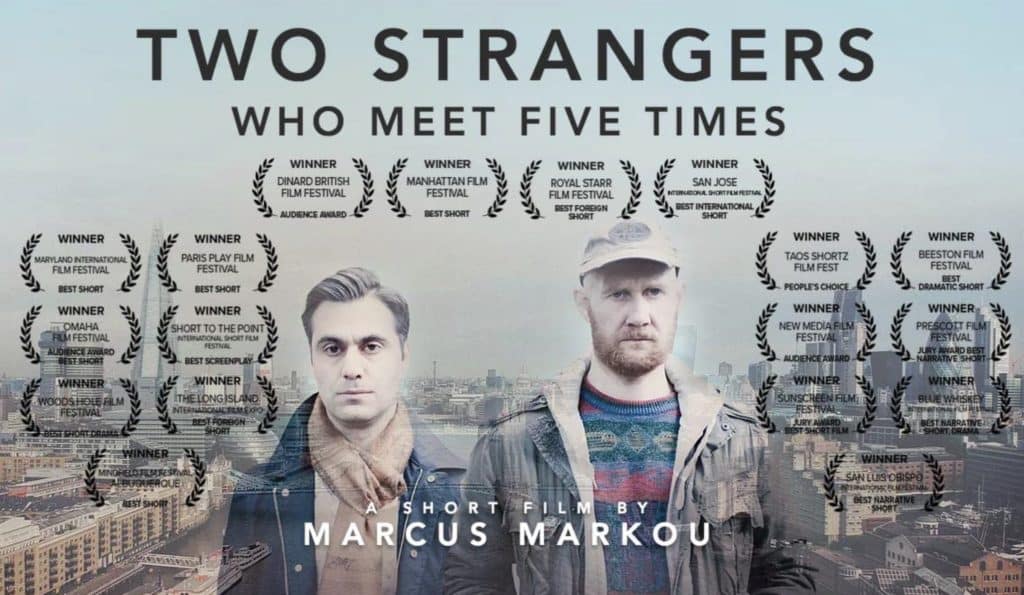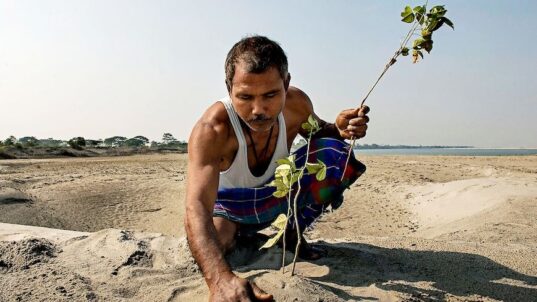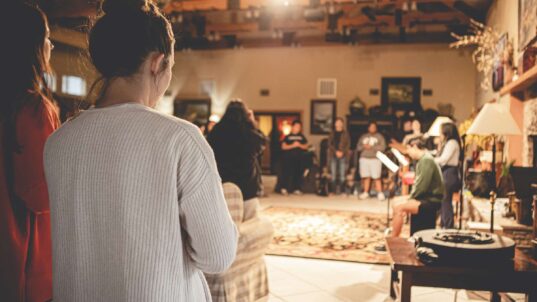
Two Strangers Who Meet Five Times © Double M Films
Who is the stranger? And who is my neighbor? What does it take for us to connect with one another across our differences?
Last week the Interactivity Foundation facilitated small group conversations around the wonderful short film Two Strangers Who Meet Five Times. As you might guess, the film tells the story of the interactions of two strangers at different times in their lives. It says a lot about the ways we perceive each other, about forces that drive us apart and others that might bring us together.
This was the first of our five-part Film and Conversation series on The Human Condition(ed): Exploring our Social Connections and Disconnections. Next up is My Brother’s Keeper, a short documentary about the friendship of a former Guantanamo detainee and a former guard (on October 7th, 1pm – 2:15 pm ET). Please register and join us for another generous and exploratory conversation.
Here’s some of what we explored in our conversations.
Big Picture Questions
- How do our expectations and assumptions shape the way we treat each other?
- How and why do we teach people to hate others or to see others as lesser?
- What are the different dividing lines or forces that alienate us from one another–and how might we counter them?
- How can we address the implicit and explicit power structures that block us from recognizing the equal humanity of others?
- How can we bring about a greater awareness of our human interdependence?
- What does it take for positive moral development, so people can become better people?
- In a world full of divisive forces, how can we become a just society, where people treat each others as equally human?
- How do we balance justice, and a sense of accountability, with charity and a willingness to forgive?
Moving Forward
- We recognize the humanity of others when we decide to help, especially when we help the most vulnerable
- Treat others as you would have them treat you
- You never know who the stranger is, so treat everyone with respect and kindness for their humanity
- We all depend on the kindness of strangers
- We need to stop handing on racism, or negativity about other groups, to the next generation
- Diversify our communities, our schools, our places of worship: exposure to others different from ourselves can help lessen negativity toward them
- Build on the power of religion or spirituality to remind us of our oneness as humans
- Travel can have a transformational power and open up the humanity of others
- Take part in more discussions and conversations across our different identities
- Challenge systems of discrimination
- Focus on restorative justice, healing the rifts in society
- Establish a truth and reconciliation approach to enable restorative justice
- Teach the value of diversity from the youngest ages
- Restore the broader perspective of the humanities within education to help us recognize the humanity of all
- Regain the wisdom of children: we’re not born hating others



